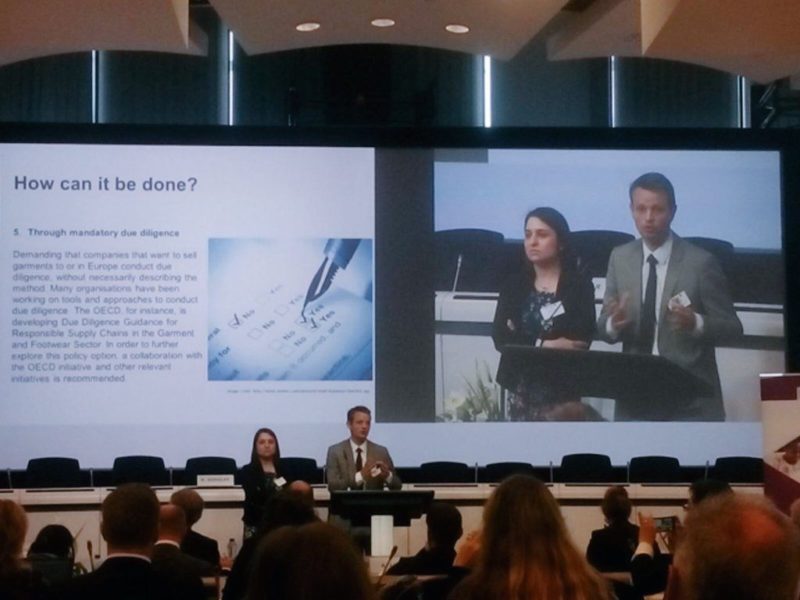Research and policy advice for the European Commission
Rupa Ganguli and Bart Slob assisted the European Commission in collecting, screening, analysing and synthesising information on responsible supply chain practices in the garment sector. On the basis of our findings, we identified the priority areas for action that could deliver added value under the EU Garment Initiative. This initiative had the following aims:
- to reach out to all stakeholders, making them work together – governments, employers and business, trade unions, and civil society;
- to create synergies between existing initiatives – building on good practice and leveraging initiatives that lack critical mass. This means filling gaps that have so far not been addressed;
- to use the EU’s clout: it is one of the most important trading partners for garment producing countries worldwide. With a market of over 500 million consumers, it has both power and responsibility. Also, many EU citizens seek out socially- and environmentally-responsible products and services;
- to combine EU internal and external policies and actions: for example, employment, social or internal market policies and public procurement, international trade and investment, and of course development cooperation and external assistance. Action at EU level also strengthens the arm of individual Member States who already take steps in this direction.


